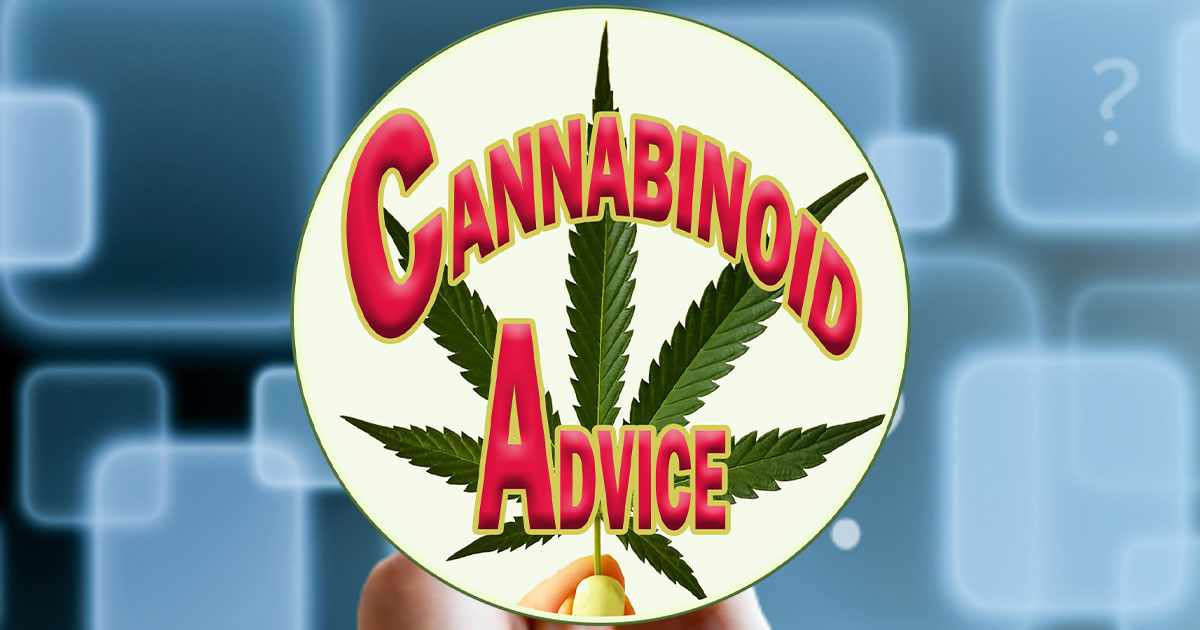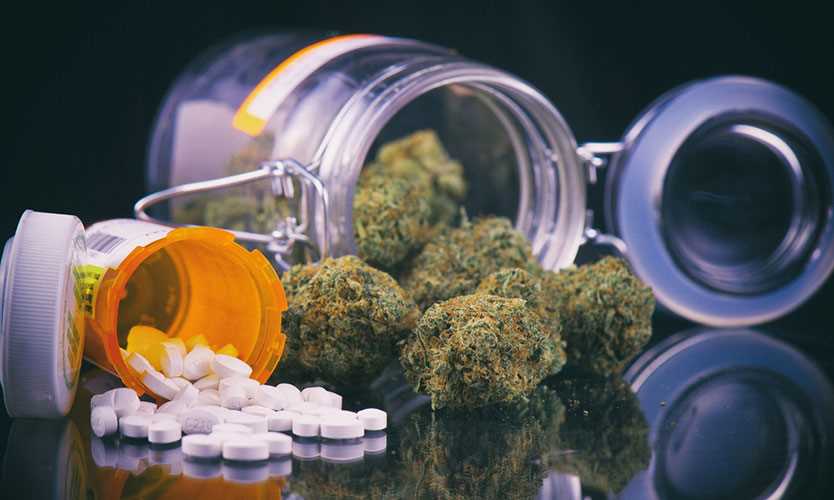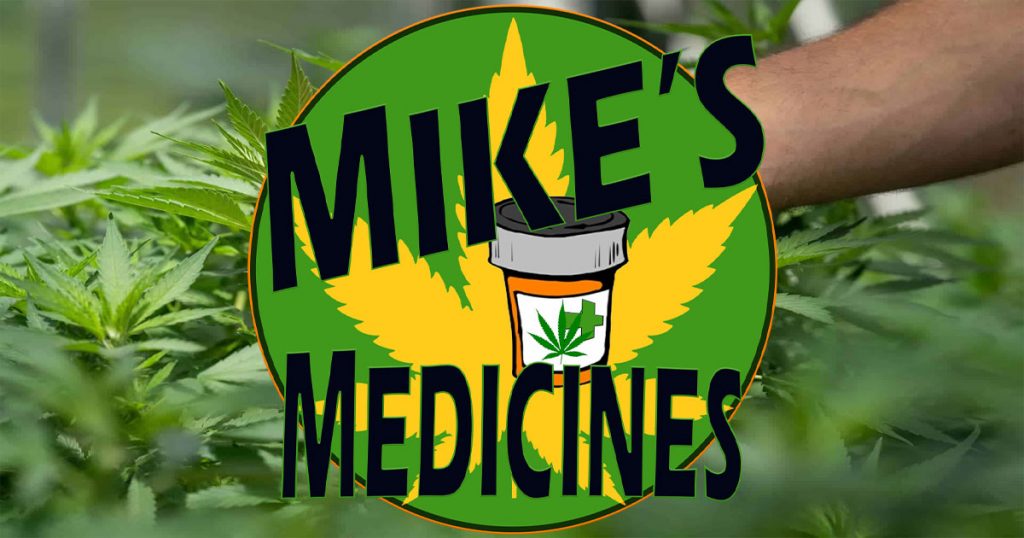Opium is a plant containing opiates that reduce pain by binding to opioid receptors in a specific system for this. Cannabis, on the other hand, is a plant containing cannabinoids that produce various effects by acting on cannabinoid receptors. This would be the primary difference but since Opium, its synthesized version of Heroin, and Cannabis all remain on the Schedule one status we’re only left with what the pharmaceutical industry has created to legally research on.
So, what is the difference between opioids and cannabis, and why would someone choose to treat their pain with one over the other? Now that’s a good question that only has a partial answer due to the lack of allowable research on cannabinoids like THC that alleviate pain in many people who’ve opted out on the pills and have gone after the plant and its extracts instead. There’s truly no fair way to answer the question of why one would choose one path or the other but we’ll examine this question further.
To get to the answers of why, of course, depend on whom you ask. It seems Doctors, researchers, and patients all have varied opinions. Some pain physicians love that cannabis can help their patients ‘opioid spare’ or use less medicine and some state that it helps patients to not increase doses and become truly addicted or act in addictive mannerisms. The National Institute on Drug Abuse has for decades hosted a bashing of the cannabis plant and its extracts but that’s quickly changing with the rapidly increasing number of professionals studying the plant daily.
The overwhelming negative research on Cannabis is now tilted on the scales of medicine with the number of both overdose deaths and side effect issues that also result in patients perishing. No longer are opioids the wonderful new way to treat moderate chronic pain, instead, they’ve proven to be a hindrance upon society and far more than their cousins that remain schedule one and cause fewer deaths per week than pills, patches, and more are causing per day. But this still doesn’t answer the question of what the difference is other than a lot of people are dying from Opioids and Opiates while we have nothing to hang our hat on for a true cannabis-only cause of death in a patient.
But Joe Ruzich, who has a nerve disease that left him sometimes screaming in pain, told the Chicago Tribune that he only survives thanks to an electric stimulator and an opioid pump. He worries that doctors are being pressured to cut off opioid medication.
“It helps people like me live a normal life,” said Ruzich, who previously wrote for the Tribune as a freelance reporter but had to stop because of his ailment. “I’m glad people have more choice, but to present it as an alternative to opioids doesn’t seem right to me.” Many have tried Cannabis or CBD and have had mixed results or not enough of a reduction in pain to stay with it. “I’ve tried so many products online but they cost me a lot and my insurance covers my pills,” Sandra Lankford of Syracuse New York explains, “I’d love to use nothing but cannabis because vaping and oils help me a lot but the cost here is too much, I can’t afford to be off the opioids, my kids need me active.”
As a recovering opioid addict of almost 3 years it’s alarming to talk to patients and see that they’re stuck on the pills instead of wanting them – and it’s also incredibly humbling to talk to those who have had no success and wish me the best on the journey to spread the word about plant medicine. Over the past year with the pandemic reeking havoc on people who haven’t been very active, it’s been alarming to see that there’s been an uptick in prescribing instead of what we’d expect to see after the worst report ever with over 100,000 overdose deaths in the year COVID became a household word.

Let's examine the difference in how they work in our bodies:
Opioids made by the pharmaceutical industry as well as opium and derivatives like Heroin activate the Opioid receptor system – much like cannabinoids do with the Endocannabinoid system. But, these drugs can be toxic and death can occur in the case of an opioid overdose, or what’s alarming is even a prescribed dose, when there’s an overload to the areas of the brain and body that have the highest densities of opioid receptors.
These three major high-density areas are the spinal cord, limbic system, and brainstem. The brainstem includes the medulla, the part of the brain that controls the autonomous, non-voluntary functions of the body like breathing and heart rate. In an overdose, areas of the brain with the most receptors become depressed, causing heart failure and/or respiratory failure.
There is a known high risk of opioid dependence. The CDC has concluded that anyone who takes prescription opioids can become addicted to them and that one in four patients receiving long-term opioid therapy in clinical settings struggles with opioid addiction. This would mean outside of clinical settings, such as at home, the rate of addiction is beyond rampant. This has caused two things – an opioid crisis and a pain patient crisis.
The legitimate pain patient is under attack in all of this and should not be also discriminated against in any way by the Cannabis Legalization movement. I spent 24 years on them and nearly 6 as a fairly well-known person in the movement hiding the fact I was addicted and this allows one to know that many other are in the same position and need further knowledge to overcome it.
Cannabis of course contains cannabinoids: chemical compounds that bind on cannabinoid receptors located in the brain and body to regulate the communication of cells. The most highly concentrated cannabinoid receptors in the brain are located in the basal ganglia, the hippocampus, and cerebellum. These areas are responsible for managing several faculties such as emotion, memory, motor control, and the autonomic nervous system.
If someone overdoses on Cannabinoids, the affected areas are not responsible for autonomic function. This means side effects may include headache, nausea, vomiting, and/or paranoia, It’s heavily disputed but there has never been a recorded case of death by overdose of cannabinoids only, but there have been a couple of instances in which the overuse has caused a person to have issues with hydration that led to the patient perishing. There have also been instances of individuals gaining foul products and perishing, but these numbers are very few and can be counted on fingers and toes. Deaths by Opioids are more than this just in the few hours it’s taking to type this article.
While cannabis has never been known to be fatal in and of itself, the CDC does warn against addiction stating that one in ten marijuana users will become addicted which is highly debatable by the entire cannabis industry – but shouldn’t be. Anything that is medicine can be abused and Cannabis is definitely medicine despite its schedule one status.
So there it is, it’s two different systems.
In the next article on Cannabis and Opioids, we’ll go over how these receptors overlap and allow for a cannabinoid replacement therapy to occur – which is why Cannabis helps people quit opioids or use less.
-Mike Robinson, Cannabis Patient and Founder, Global Cannabinoid Research Center. But, most of all, Genevieve’s Daddy
Sign up to receive informative and exciting email updates from Mike's Medicines!
You can sign up for our mail list here:
Didn't find what you are looking for?
Find exactly what you want to when you want it.
Browse through our archives by date, category or by entering a topic in the provided search field.
Archives
Categories
More to come as we have time to add them – there’s 100’s of additional publications!

We’ve made it easy for you to read Mike’s Medicine Blog or visit any of the Menu items right from here. It is that simple! Explore Mikes Medicines by clicking on the button below:

Read about how Cannabis Compassion and love created Mike’s beautiful family, the Cannabis Love Story inspires millions daily:
Genevieve’s Dream is all about her love for the Carousel coupled with her Cannabinoid Medicine journey – read more and make contact if you’re interested in collaborating with Mike!
The Global Cannabinoid Research Center is a trusted source for education, R&D, and more – make contact with us to collaborate.







